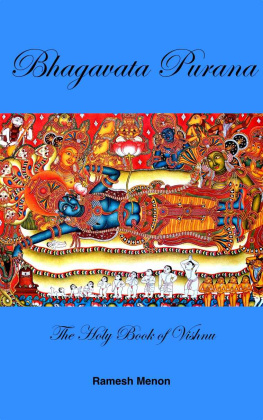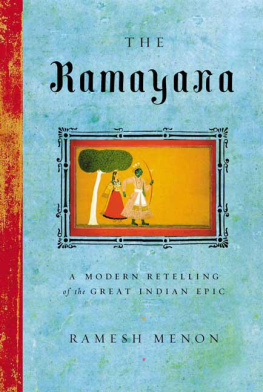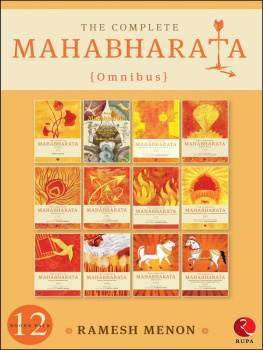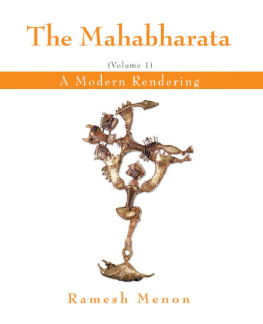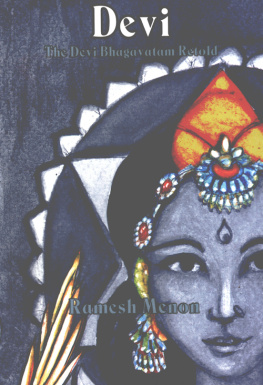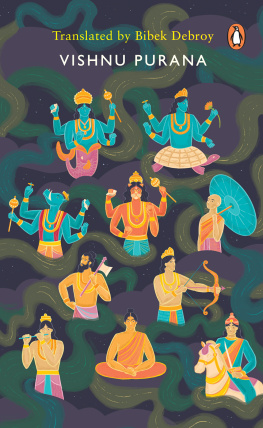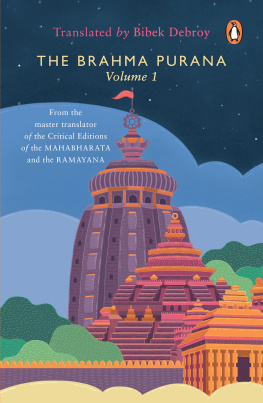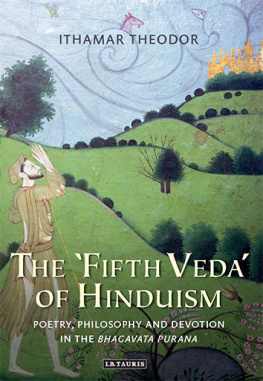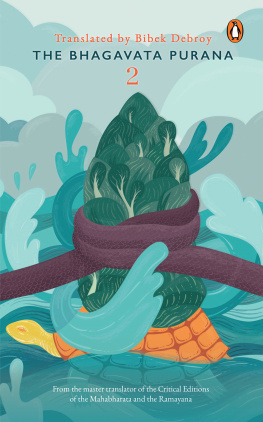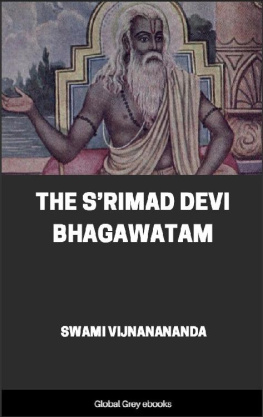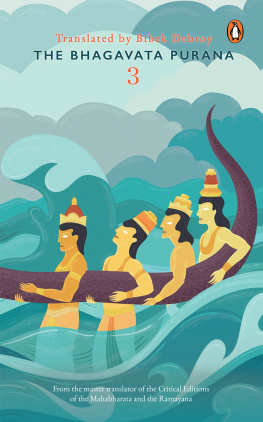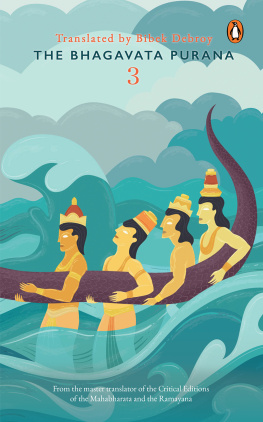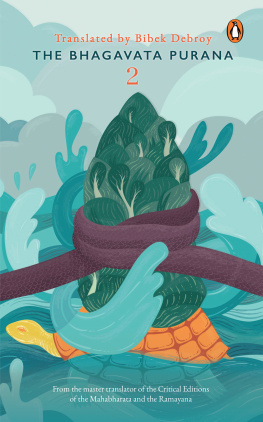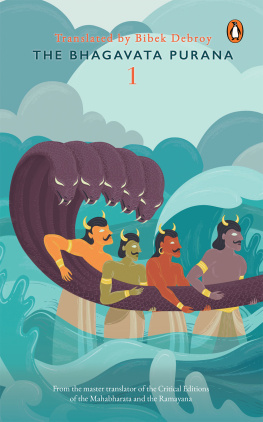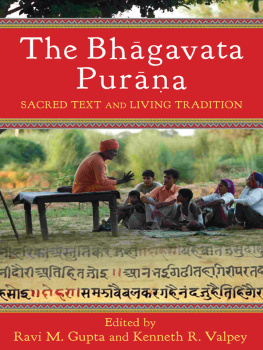Chapter 1. In the Naimisa vana.
I n the sacred and enchanted forest, the Naimisa, Saunaka prostrates himself before the Suta Romaharshana, and says, The sinister kali yuga advances day by day. Evil shrouds the world in darkness, and everywhere demons rule.
Your wisdom is as a million suns, master. Light the lamps of our wisdom, tell us how to save ourselves from the terrors of this macabre age. Tell us how we can have the grace of the Lord Krishna even in this wretched time.
Suta replies, Saunaka, there is love in your heart, and you will find grace. Vyasas son, the blessed Suka, has left us the holy Bhagavata Purana, to help us cross every distress of the kali yuga.
This Bhagavata m is no ordinary scripture. When Suka first told it to Parikshita, all the Devas arrived in that kings court. The Gods brought a chalice full of amrita, the nectar of immortality, offered it to Suka and asked for the Bhagavata m in return.
Suka laughed, How can this amrita compare with the Bhagavata m ? It is like comparing a glass bead with the chintamani!
He refused to give them the Bhagavata m , which is called the secret Purana, because they were not true bhaktas of the Lord Vishnu. So the Devas themselves do not have the immortal Purana.
But Suka told Parikshita the Bhagavata m , over a week, and even Brahma wondered at how Parikshita found moksha by just listening. As Brahma returned to Satyaloka, he weighed in his mind all the paths to nirvana, and found that this one, the Bhagavatam, was easily the heaviest. He realised, in amazement, that this Purana was a living embodiment of the Lord Vishnu Himself.
The Suta pauses thoughtfully, then says, Of course, before Suka, Narada Muni received the Bhagavatam from his father, the Lord Brahma. This was after the ever youthful Rishis, Sanaka, Sananda, Sanatkumara and Sanatana told Narada that listening to the Bhagavatam for a week confers illumination.
Saunaka wanted to know, How did Sanaka and Sananda first mention the Bhagavatam to Narada?
Suta says, You must not tell anyone what I am about to divulge to you. Suka Muni considered me his sishya, and he told me this in the strictest confidence.
Chapter 2. Narada and Bhakti.
Once, Sanaka, Sananda, Sanatkumara and Sanatana, the four Kumaras, and some other sinless Rishis arrived in Badarikasrama, on earth, and saw Narada there, disconsolate.
Sanaka greeted Narada and asked, Muni, why are you so downcast? And you seem to be hurrying away already.
Narada answered him, Knowing that this Bhumi is the best of all the worlds in the universe, I came here to worship at its sacred tirthas. I went to Pushkara, Prayaga, Kasi, to the Godavari , Haridwara, Kurukshetra, Sriranga, and Rameswara; but at none of these holiest places did I find any peace or grace.
Ah, my friends, this earth has truly been seized by the demonic kali, and there remains no place where one may find truth, purity, meditation, compassion or liberality.
Narada was most distraught, as he continued. Everywhere, men are only concerned about filling their bellies, and hoarding wealth. They lie and cheat one another.
They have lost their discrimination, and become dull and foolish. Even those that call themselves Rishis and Sannyasis are charlatans, as entangled in samsara as all the rest.
Women and property are their true concerns, not the life of the spirit. The old ways have all but disappeared from everyday life. Men sell their daughters for greed. Husbands and wives live in strife, always quarrelling.
Young women rule their husbands homes, with no regard for what the elders say. Ones wifes brother becomes a counsellor, whose advice prevails in all matters.
Foreigners inhabit the holiest tirthas and asramas. The most sacred temples have been desecrated and corrupted by them. No yogis, men with any real mystic powers, remain in the land of Bharata to bless the kingdoms and the people.
The holy orders of Guru and sishya have vanished. Men live by selling food, and women by prostitution, of one form or other.
He sighed deeply, in great distress, I wandered the length and breadth of the Holy Land of Bharata, and saw evil rooted everywhere, and the ascendancy of hatred over love.
In some anguish, I came to the banks of the Yamuna, where my Lord Krishna once grew, where he sported with his friends and his lovers.
Sages, there I saw a young woman, seated on the banks of the river. She was graceful and exquisite, but she was as wan as a wilted lotus.
Near her on the white sand, lay two ancient men, as if lifeless. Their eyes were shut, and their breathing was heavy and stertorous. The young woman fanned their faces, desperately; she sprinkled water on their cheeks, and spoke to them, trying to awaken them.
She shed tears, but the old men did not stir. I saw a host of other women, all of unearthly beauty, trying to reassure her, but she wept without pause, and was inconsolable.

